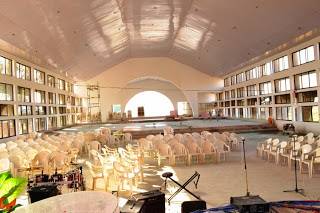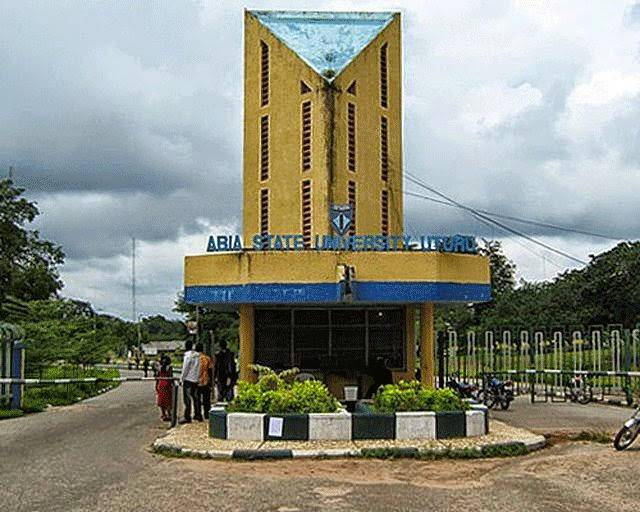Nnamdi Azikiwe University

About Nnamdi Azikiwe University
Nnamdi Azikiwe University popularly called ‘UNIZIK’ or ‘NAU’ was established in 1991 by the Federal Government from the defunct Anambra State University of Technology. It was named after Dr. Nnamdi Azikiwe, the Premier of the Eastern region of Nigeria. The University has three campuses, the main campus located in Awka, another in Nnewi, and the last at Agulu which houses the Faculty of Pharmacy, all situated in Anambra State.
Unizik is one of the twenty-five Nigerian Universities to be overseen and accredited by the National Universities Commission (NUC). All the programmes offered lead to officially recognized degrees such as pre-bachelor (certificates, diploma, foundation degrees), bachelor, masters and doctorate degrees in various disciplines.
Admission at the University is strictly based on merit and involves obtaining all the prescribed requirements, passing both JAMB and the entrance examination (Post-UTME) in flying colors. It’s important to also note that Unizik provides standard academic and non-academic facilities to students and staffs of the institution.
Nnamdi Azikiwe University Faculties And Courses
The University has 14 faculties offering accredited courses in relevant fields. Care to know what course falls under what faculty? Here’s a list to help. The faculties and courses at the University are as follows:
Faculty of Arts
The departments here include:
English Language and Literature
History and International Studies
Igbo, African and Asian Studies
Linguistics
Music, e.t.c
Faculty of Agriculture
You can offer programmes such as:
Agricultural Economics and Extension
Animal Science and Technology
Crop Science and Horticulture
Fisheries and Aquaculture, e.t.c
Faculty of Biosciences
Department of Applied Biochemistry
Department of Applied Microbiology and Brewing
Department of Parasitology and Entomology
Department of Zoology, e.t.c
Faculty of Education
Includes the following departments:
Adult Education
Human Kinetics and Health Education
Guidance and Counselling
Science Education
Educational Management and Policy
Early Childhood and Primary Education
Library and Information Science
Educational Foundations
Faculty of Engineering
Offers relevant courses in the field of Engineering such as:
Agriculture and Bio-resources Engineering
Chemical Engineering
Civil Engineering
Electronic and Computer Engineering
Electrical Engineering, e.t.c
Faculty of Environmental Sciences
Architecture
Building
Environmental Management
Estate Management
Fine and Applied Arts
Quantity Survey, e.t.c
Faculty of Basic Medical Sciences
Human Anatomy
Human Physiology
Human Biochemistry
Faculty of Health Science and Technology
Medical Laboratory Science
Medical Rehabilitation
Nursing Science, and
Radiography/Radiologic Science
Faculty of Management Sciences
Accountancy
Banking and Finance
Business Administration
Marketing, e.t.c.
Before you can gain admission into the University to study any of these courses, you have to satisfy the admission requirements and have all the required documents. Are you looking at studying at UNIZIK? Or are you interested in knowing what is required of you as a prospective student? We’ve got you covered. Read about the admission requirements below.
Nnamdi Azikiwe University Admission Requirements
UNIZIK offers programmes for bachelor, masters and doctorate degrees. These levels have their specific and general requirements. Find the general requirements for each level below
General Admission Requirements For Undergraduates Into UNIZIK
100 Level Entry Students:
Applicants must possess a minimum of 5 credits in SSCE/GCE O’LEVEL/NECO/NABTEB or other equivalents at not more than two (2) sittings obtained in subjects relevant to the proposed field of study. The 5 credits must compulsorily be in Mathematics, English and 3 other related subjects.
You are also required to register, sit for and obtain the Prescribed JAMB cut-off mark for your preferred course.
You may also be required to sit for an entrance examination (Post-UTME). Having a high score in it increases your chances of gaining admission.
200 Level (Direct entry) Students:
In addition to having the above requirements, you may also be required to;
Have a National Diploma, which should come from a recognized institution in Nigeria. Applicants may also be required to have a Nigerian Certificate in Education (NCE) in a subject(s) related to the proposed field of study with a minimum of one unit and two (2) passes.
The University has a PG school that has made provision for postgraduate programmes at PGD, Masters, and Ph.D. levels. The courses offered in these levels are relatively similar to those offered at the Undergraduate level. The requirements for each level are as follows:
Nnamdi Azikiwe University Admission Requirements For Postgraduate Diploma (PGD)
Are you a prospective student vying to gain admission into this level? Then you must be a graduate of Nnamdi Azikiwe University or an Institution recognized by the school with at least a third class degree or a minimum upper credit in the Higher National Diploma (HND).
Nnamdi Azikiwe University Admission Requirements For Master’s Degree
Candidates must have a first degree in the preferred course of study a relevant discipline with an FCGPA of not less than 3.0 from UNIZIK or a recognized university.
Nnamdi Azikiwe University Admission Requirements For Ph.D.
Prospective applicants must have a master’s degree in the preferred course with an FCGPA not less than 3.50 on a 5 point scale or an average of 60% from the University or one recognized by the school.
More information about specific admission requirements can be found on the school’s website under the undergraduate or postgraduate option at unizik.edu.ng.
Nnamdi Azikiwe University Facilities
The facilities and resources at the institution include:
Halls of residence and Staff quarters
Faculty buildings and Administrative blocks
Lecture halls and Theatres
Science Laboratories
An extensive library
A teaching hospital (NAUTH)
A sports unit
An online repository for journals, theses, and articles
Relaxation centers
And a host of other standard facilities.
Things To Know About UNIZIK
For travelers who intend to visit or prospective students of the University, here are a few things to know:
Safety
Adequate security is provided on all its campuses with the presence of well-trained security personnel. Individuals are still advised to be vigilant.
Best Time To Visit
During office hours on weekdays, the institution is open to inquiries, study or exploration.
Most Common Visitors
Staffs, Students, and Parents are the most common faces around.
Nnamdi Azikiwe Notable Alumni
The University has churned out some reputable individuals in the Country. Here are a few of them:
Uche Ekwunife, Nigerian Politician, and Member of the Senate
Oge Okoye, Nigerian Actress
Mike Ezuruonye, Nigerian Actor
Sharon Francis, Nigerian Actress
And many more
Nnamdi Azikiwe University School Fees
School fees are one of the determining factors when choosing your preferred course of study, it’s one that shouldn’t be taken lightly. We’ve compiled details of the school fees schedule at UNIZIK and they exist in two categories: entry level (both UTME and Direct entry) and returning students (200,300,400,500 levels). Find the details below
Entry level students: N65,000 - N70,000 depending on your preferred course.
Returning students: N20,000 - N25,000 depending on the level and course of study
Proper care should be taken when making payments, and you can also visit the University’s website for payment options and procedures. Please note that the school fees schedule above is for the 2017/2018 academic session.
Reason To Recommend Place
I would recommend this place because they encourage the advancement of all branches of learning and to hold out to all persons without distinction of race, creed, sex or political conviction, an opportunity of acquiring higher and liberal education.
Ways Of Travel
By Car and Public transport
Type Of People Who Visit
Students and lecturers.
Entry Fee
₦0 - ₦1,000
Reason For Loving Place
I love this place because it aims to use teaching, research and public service to solve societal problems. In the process of learning, students would be oriented to use education in the solution of practical problems confronting them and the Nigerian society.
What To Bring
["Academic documents","Cash","Valid Identification"]


